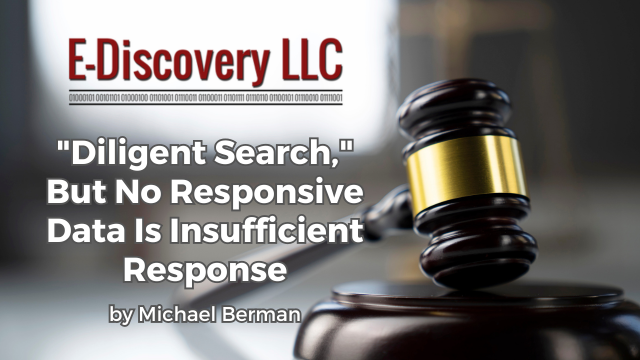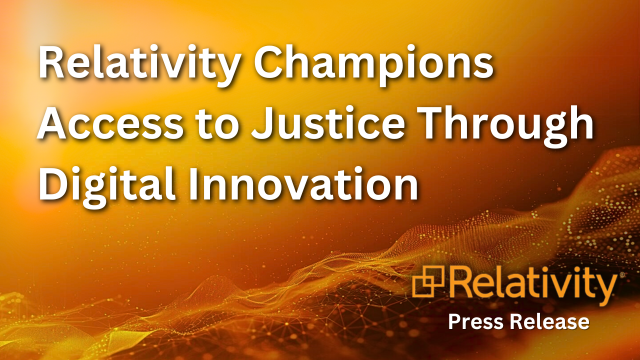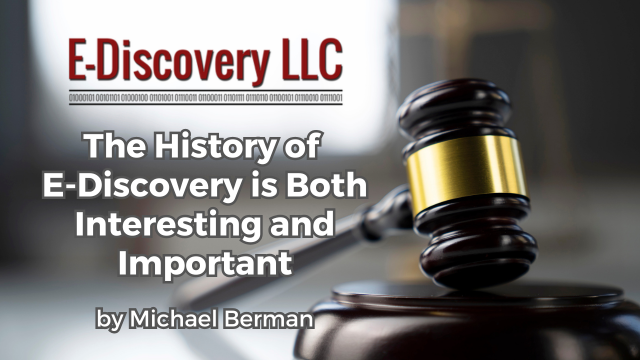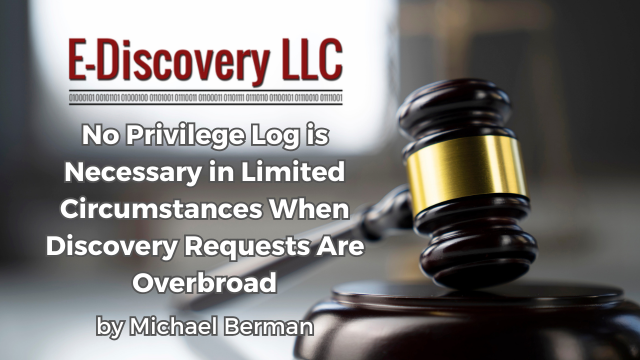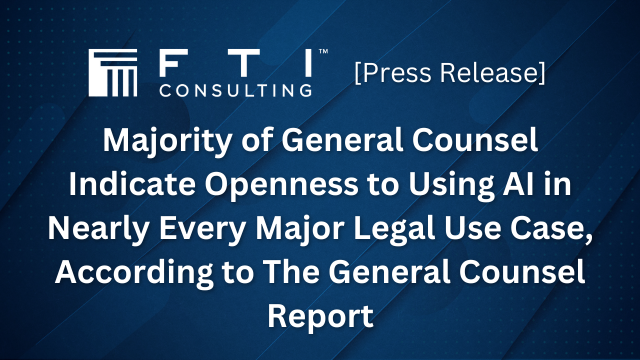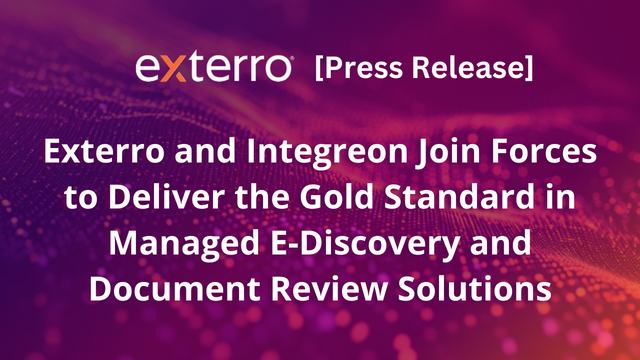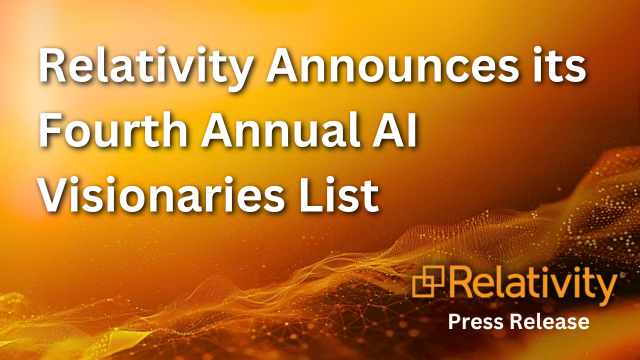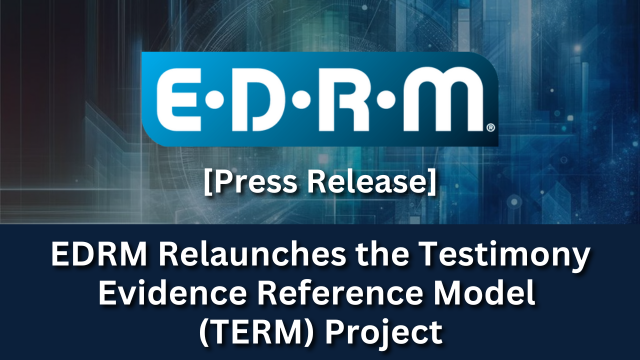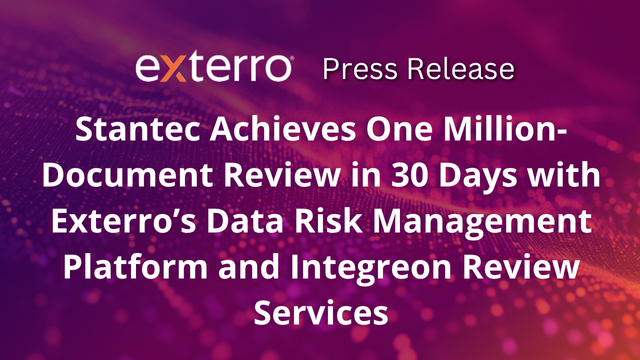
Stantec Achieves One Million-Document Review in 30 Days with Exterro’s Data Risk Management Platform and Integreon Review Services
Faced with a looming court deadline, Stantec partnered with Exterro and Integreon to review nearly one million documents in just 30 days—saving over $100K in monthly costs and establishing a new benchmark for defensible, high-speed discovery.




